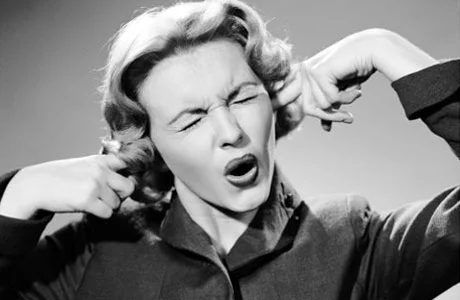Sometimes the finer parenting moments are delivered in a pretty package with a perfectly tied bow and sometimes they come in a beat up Barbie suitcase.
Mine came this week unexpectedly. When the delivery was made, I was tired, irritated and markedly bored with the drama that came with it. I have been in preparation mode for the frustrations of adolescence since my children’s birth, but the tween years I am thoroughly unprepared for.
One minute, I am the” Best Mommy in the World.” The next I “Just Don’t Understand” in an octave high enough for the neighborhood dogs to feel compelled to join in. And no, I don’t understand how my sweet cherub can give me the best love hugs and in the same embrace squeeze hard enough so my organs are coming out of my nose. What is that??
So when I first read her “I’m moving out” note earlier this week, I was a little annoyed. Well, actually, she was annoyed, so said the note (which she did not give me permission to use- which is too bad because she had nice penmanship and it was well worded). But of course, I did take a picture to capture the moment and sent it to my friends to show the prison of emotional turmoil I was living in. And to laugh, of course, at the claim of moving out, along with a detailed description of where she’d be in case I wanted to find her. And then signed it with XOXO. Really?
I decided it was best to let her sit for a while. After all, I could see her from the window. My only hesitation was wondering what the neighbors would think as they drove by this young girl, bags packed, sitting on the street corner…In Front Of Her House. But I decided to let it go and let her ponder how long it would take me to “Just understand” her. Plus I was in the middle of making her favorite dinner while getting ready to go to her Spring concert at school. Clearly, my neglect of her needs was over the top.
Time ticked away and I finally had to go get her when I saw a bicyclist stop to talk to her and I imagined all the things she would say when she called the Department of Child and Family Services. Turns out, it was my good friend riding through our neighborhood and she had already offered my daughter a place to stay by the time I had got out there. And that’s when it happened….
In an instant, a spot light beamed out of nowhere down to her now open, beat up Barbie suitcase. Invisible harps started playing beautiful music and the world slowed down as I gazed into her bags. She had packed a week’s worth of clothing, neatly folded and ready to be put away. Three full bottles of water to keep herself hydrated, and plenty of snacks including granola bars, fruit and a cheese stick to keep her sustained. And to top it off, she had a plastic grocery bag filled with all of her change so she could buy whatever she missed. And that is when I knew I had arrived to my new parental status. I had successfully prepared my daughter to stand on her own two feet and live without me…at least for a few hours.
I have always prided myself on being prepared for my children’s wants and needs while on vacation, or on the road going anywhere. Our summers are spent out of the house at the park or lake every day requiring days’ worth of supplies to be readily available, so forethought is always needed. Gradually, they have become much more involved in the planning and packing process and now they pack for their own overnight stays at their friends’ or grandparents’ houses figuring out what they missed each time.
So to see this planning and preparation in action, knowing she could be out on her own for an undetermined amount of time (or at least until she had to come in and eat dinner) gave me an enormous sense of pride and satisfaction that they DO listen and watch and learn. She could go live in a tent or on a park bench for at least a day or two on her own, honoring the allotted time to make a missing person’s report after 24 hours. This feat of independence warms my heart and gives me the encouragement to push on, even on the days I “just don’t understand” if what I’m doing is making any impact at all.
As their parent, I want to guide them and hold their hand, but I want to know that when I let go of it, they will use it to wave goodbye independently and build their life the way that works for them. Personally, I would not have used a plastic shopping bag for all my change, but that’s me. I would however, have used the same PBA free water bottles and filled them to the top…and I definitely would have packed a cheese stick. I was comforted to see the choices that she made and can make some casual, unsolicited suggestions for future run away packing when the time is right.
And during these tween years, it is helpful for me to know that she can make it on her own, especially for the days she is asked to leave my presence and sit in quiet mediation as she finds a way to alter her tone of voice and adjust her attitude. At least I know she’ll be just fine.
What do you think your child would pack in their getaway bag? Every parent needs to know.










